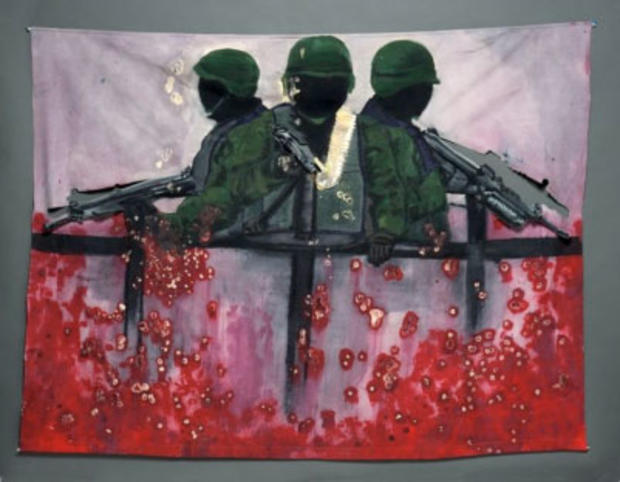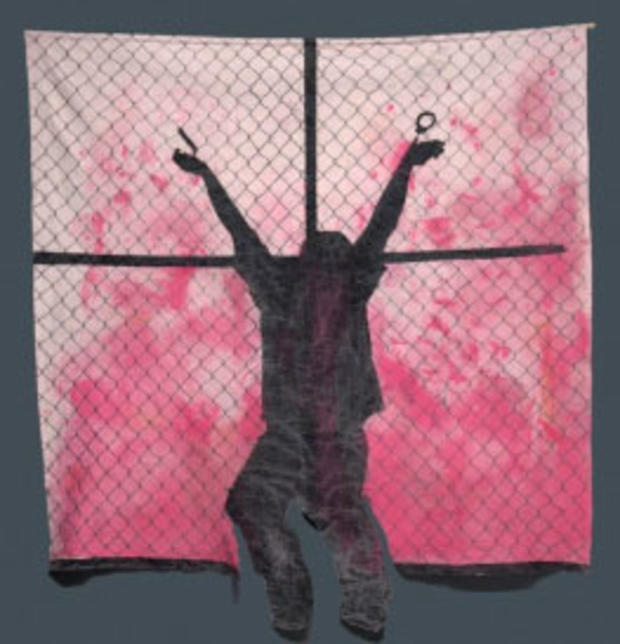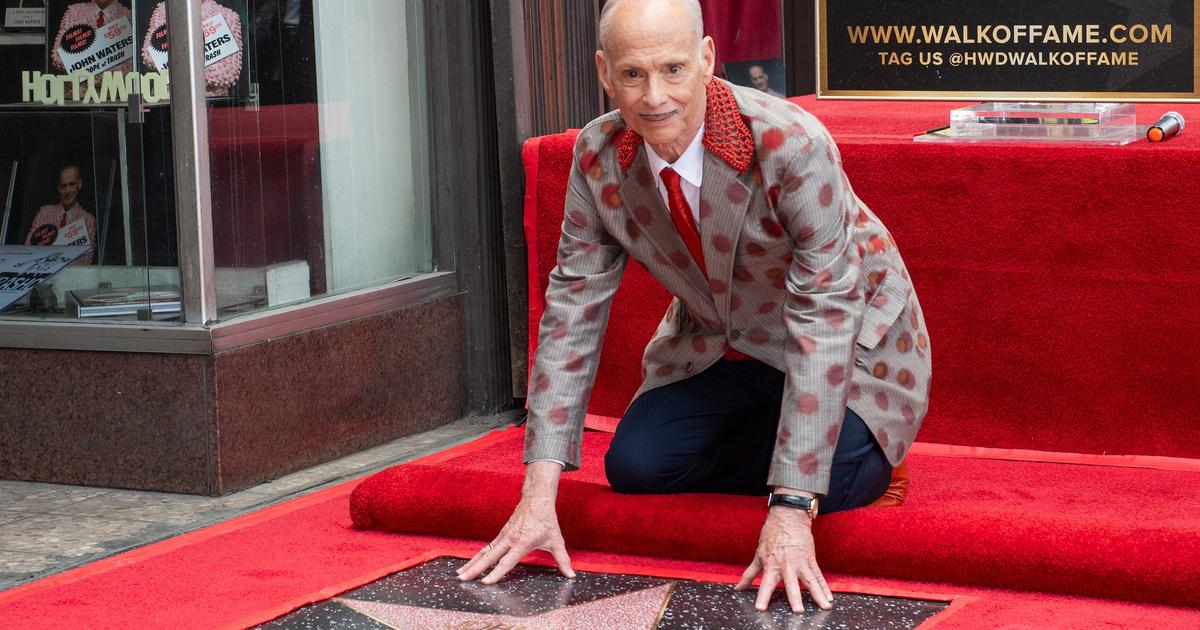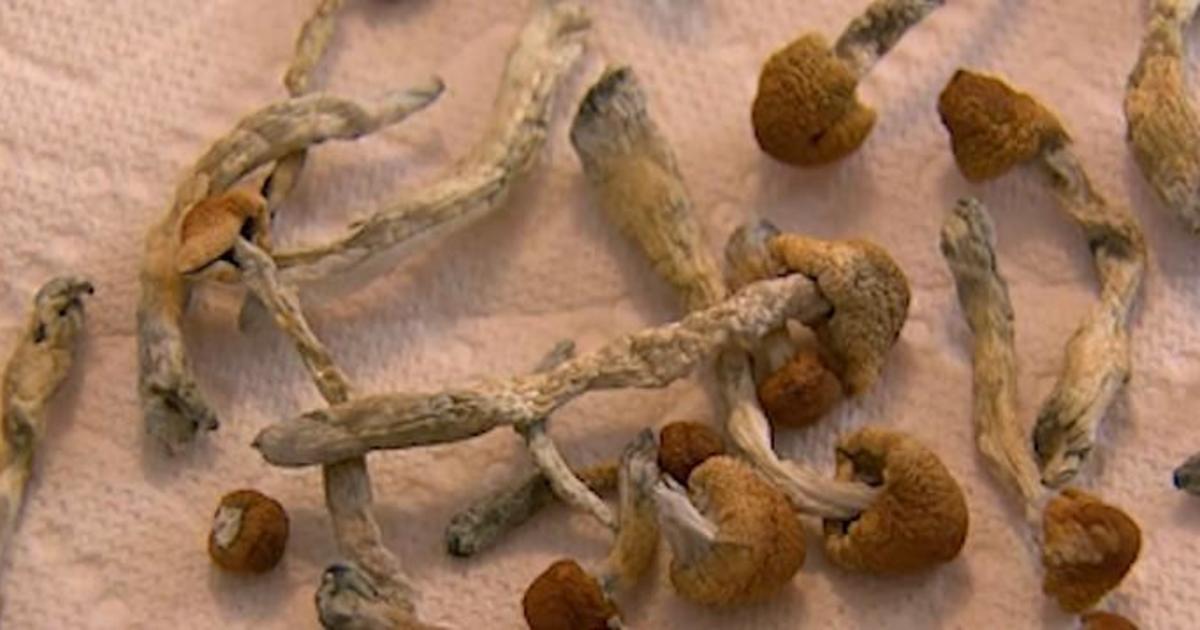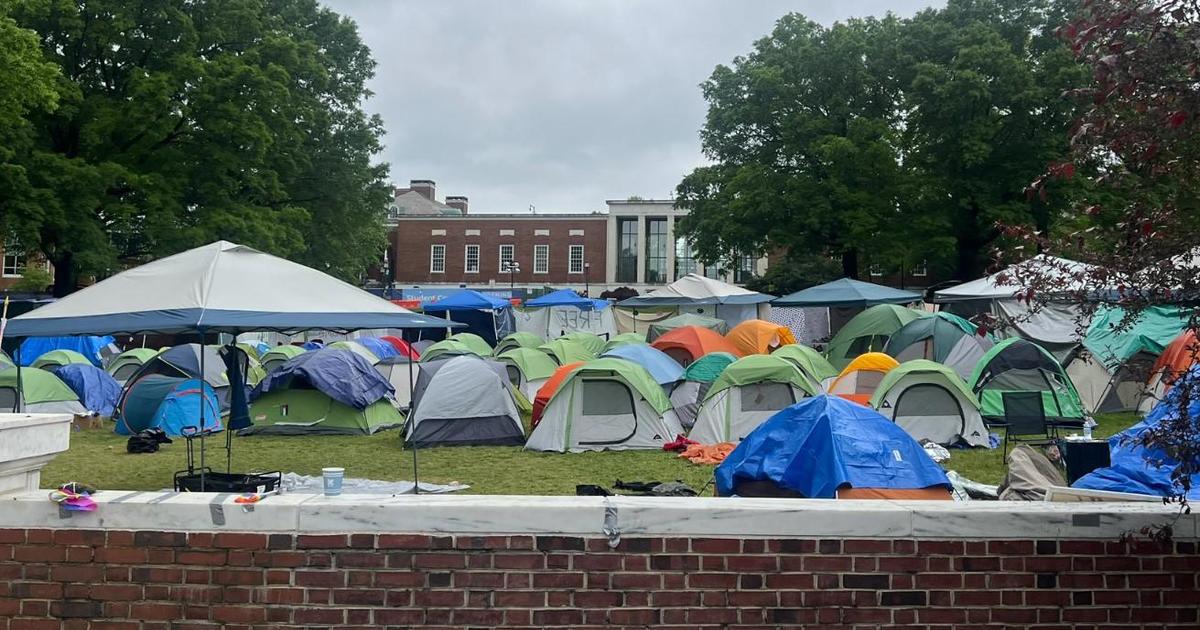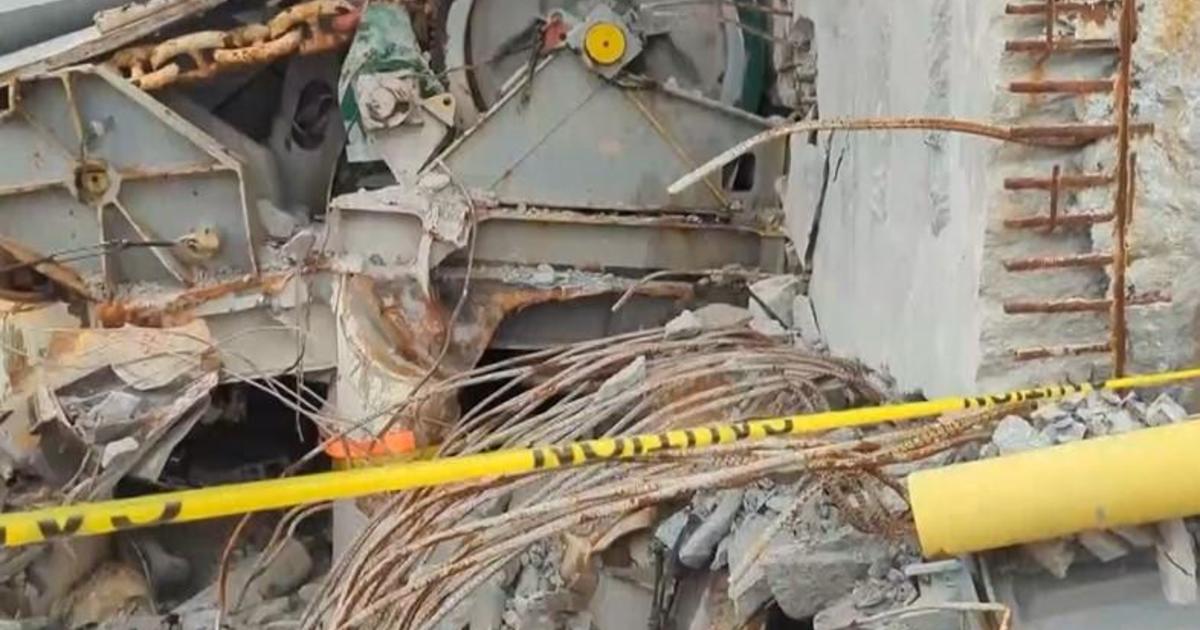Local Artist Spotlight: Antonina Clarke
By Abdu Ali Eaton
Raised in Southern California and now living in Baltimore, Maryland Institute College of Art student Antonina Clarke's passion for justice is reflected in her art. Her images portraying the violence in Juarez are particularly powerful. CBSBaltimore.com recently talked to the artist about her work and inspiration.
CBSBaltimore.com: What inspires your work?
Antonina Clarke: My inspiration comes from the mountains, my travels, things I've learned, and the people I've loved. I tend to find beauty in the bittersweet; making art that goes hard yet remains sensitive.
CBSBaltimore.com: You use different mediums, from fibers to paint. What is your favorite to play with?
AC: Paint. Especially large scale murals with rollers. Fiber art is probably my favorite material to work with; it takes time but packs a punch. Paint sits on the surface whereas textiles can embody something sentimental, protective or functional all at once.
CBSBaltimore.com: A lot of your art is very political. Do you feel there is a huge void to fill when it comes to political art?
AC: Yes. A lot of people don't like "political art" because it's poorly done, offends its audience before they can interact with it, or preaches to the choir. Some political art has too much message, most art has too little. I strive to be like The Clash, incredible music with a decent head on its shoulders.
CBSBaltimore.com: What has been your favorite subject for your art?
AC: Narcoviolence in Juarez and elsewhere. Juarez is the most violent city in the world. And they're our neighbors. Its violent nature stems from a drug trade that feeds Americans and is perpetuated by laws enforced by our government. I grew up in Southern California and the difference between my life and those of people born just 45 minutes away is insane.
CBSBaltimore.com: How do you think art influences pop culture and what's going on in society?
AC: Art is an observer and a catalyst. In the past 50 years we've seen the roles of women and gays change drastically each decade, I think we'd be foolish to say feminist artists and gay artists didn't impact that change (Keith Haring, Barbara Kruger, Guerilla Girls). It might not pass laws, or be a science, but it plants seeds in the mind.
CBSBaltimore.com: Do you think Baltimore is a source of inspiration?
AC: It's hard to see at first glance, but beneath the social and economical struggles of this city and its people there is a strong pulse. It's inspiring to see what grows out of this environment; some make-your-own mentality: that's Baltimore.
CBSBaltimore.com: Your work is somewhat abstract. Are you as complex as your art?
AC: Yeah I'd say I'm as complex as my art. It tends to end up being personal even when I think it's not. The bright colors I use are things I recognize from growing up in Southern California and Colorado and spending time outside, whereas the dark and bright, psychedelics of my work are all from places I've been and would like to go.
CBSBaltimore.com: Who do you make art for?
AC: For my own enjoyment/sanity and for other beauty-seeking folk; to move the world and show what we all have in common.
CBSBaltimore.com: What's next for you?
AC: Clothes and shows. I'm weaving and silkscreening the beginnings of a fashion line. So far, there's burn-your-eyes bright colors alongside tans and neutrals. Super bright, multi-dimensional, fresh, weird stuff. Woven vests, psychedelic prints, collared shirts with tons of detail. That will be done in April, and this fall I'll be showing some of the tapestries I made about Juarez.
To see more of Antonina's work visit antoninaclarke.blogspot.com.
